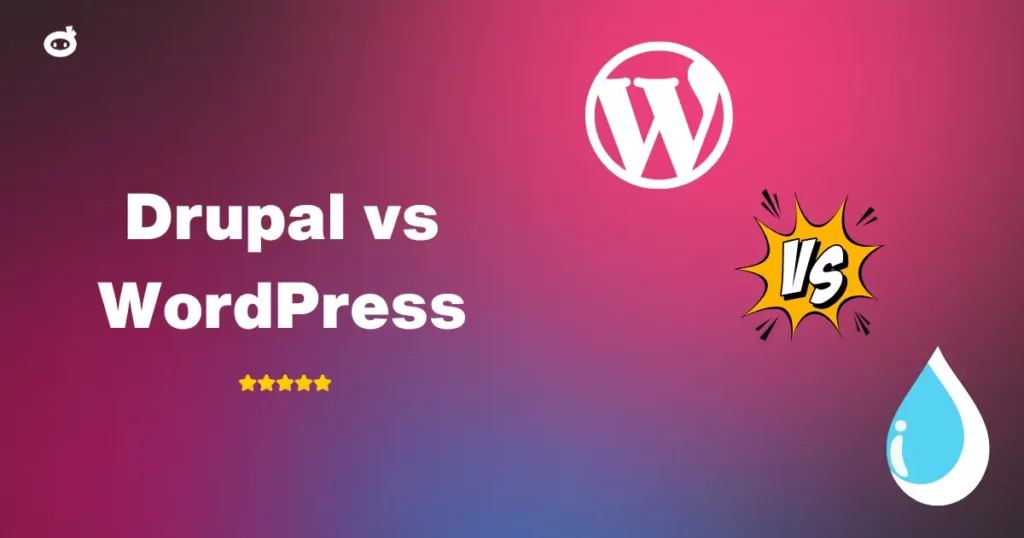Your web browser is more than just a tool, it’s the gateway to everything you do online. Whether you’re streaming videos, managing finances, or working on important projects, the right browser can enhance speed, security, and overall efficiency. On the other hand, the wrong choice can slow you down, expose you to security threats, and limit functionality.
Different browsers offer unique benefits. Some prioritize lightning-fast loading speeds, while others focus on privacy, blocking intrusive ads and trackers. Security features vary widely, with some providing built-in protection against malware and phishing attempts. Customization also plays a key role, extensions, themes, and syncing capabilities can transform a basic browser into a powerful, personalized tool.
Choosing the right browser isn’t just about convenience; it directly impacts your digital security and productivity. A well-optimized browser ensures seamless multitasking, safe transactions, and smooth navigation. Instead of settling for the default, explore the best options available. Your browsing experience should work for you, not against you. Upgrade today for a faster, safer, and more efficient internet experience.
Contents
- 1 Understanding Web Browsers: Gateways to the Internet
- 2 Performance Matters: Speed and Efficiency in Web Browsing
- 3 Security Features: Protecting Your Online Activities
- 4 Privacy Controls: Managing Your Digital Footprint
- 5 Compatibility and Support: Ensuring Seamless Access
- 6 Customization and Extensions: Tailoring Your Browsing Experience
- 7 Impact on Education: Facilitating Learning and Research
- 8 Advantages and Disadvantages: Weighing Your Options
- 9 Conclusion: Your Browser, Your Experience
Understanding Web Browsers: Gateways to the Internet
The internet is a vast world of information, and web browsers serve as the gateways that connect users to it. A web browser is a software application that retrieves, presents, and navigates web content. It translates complex code into readable text, images, and interactive elements, ensuring a seamless browsing experience.
Primary Functions of Web Browsers
Web browsers perform multiple essential tasks, including:
- Rendering Web Pages – They interpret HTML, CSS, and JavaScript to display websites as intended.
- Managing Multiple Tabs – Users can browse multiple websites simultaneously through tabbed browsing.
- Bookmarking and History – Browsers allow saving favorite sites and tracking previously visited pages.
- Security and Privacy Features – Features such as incognito mode, pop-up blockers, and anti-tracking tools help protect user data.
- Extensions and Customization – Plugins and add-ons enhance functionality, catering to specific user needs.
Popular Web Browsers and Their Unique Features
Each web browser offers distinct advantages, making the choice dependent on personal preferences and requirements.
1. Google Chrome
- Speed & Performance: Chrome is known for its fast browsing and efficient resource management.
- Extensive Extension Support: A vast library of extensions enhances productivity and customization.
- Cross-Platform Syncing: Seamless access across devices through Google account integration.
- Frequent Updates: Regular updates ensure security and new features.
2. Mozilla Firefox
- Privacy-Oriented: Firefox emphasizes user security with features like Enhanced Tracking Protection.
- Customizable Interface: Offers flexibility in modifying toolbars, themes, and extensions.
- Open-Source Foundation: Transparent development allows community contributions and audits.
- Lower Memory Usage: Consumes fewer system resources compared to Chrome.
3. Safari
- Optimized for Apple Devices: Seamless performance on macOS and iOS with deep ecosystem integration.
- Energy Efficiency: Consumes less battery, making it ideal for MacBook users.
- Strong Privacy Measures: Intelligent Tracking Prevention blocks invasive trackers.
- Smooth Performance: Fast rendering speeds enhance user experience.
4. Microsoft Edge
- Built on Chromium: Offers Chrome-like performance with additional Microsoft features.
- Efficient Resource Usage: Consumes less RAM while maintaining speed.
- Integrated Productivity Tools: Features like Collections and vertical tabs improve organization.
- Enhanced Security: Includes Microsoft Defender SmartScreen for safer browsing.
5. Opera
- Built-In VPN: Provides enhanced privacy by masking the user’s IP address.
- Ad Blocker: Improves speed by blocking intrusive advertisements.
- Sidebar & Workspaces: Unique multitasking features for efficient navigation.
- Crypto Wallet Support: Appeals to blockchain and cryptocurrency enthusiasts.
Choosing the right web browser depends on personal needs, whether it’s speed, security, privacy, or customization. By understanding the strengths of each, users can select the best browser for an optimal internet experience.
Performance Matters: Speed and Efficiency in Web Browsing
The web browser you use significantly affects your browsing experience. Choosing the right one can boost speed, enhance efficiency, and optimize device performance. Browsers differ in how they load web pages, manage system resources, and interact with websites, making the decision more impactful than many realize.
Page Loading Speed: The Key to Seamless Browsing
A browser’s ability to load pages quickly depends on several factors:
- Rendering Engine Efficiency – Browsers use different engines (e.g., Blink, Gecko, WebKit) that determine how fast they process and display web pages.
- JavaScript Execution Speed – A browser with a fast JavaScript engine ensures smooth interaction by executing scripts efficiently.
- Caching Mechanisms – Browsers that effectively store and retrieve cached data reduce reload times, making frequently visited sites load faster.
- Ad and Script Blocking – Some browsers block ads and unnecessary scripts, preventing slowdowns caused by excessive third-party content.
- Network Optimization – Faster DNS resolution and efficient handling of HTTP/3 requests improve loading times, even on slow networks.
A browser optimized for speed minimizes frustrating delays and enhances productivity, whether for personal browsing or professional tasks.
Impact on System Resources and Device Performance
Web browsers significantly influence device efficiency:
- Memory (RAM) Consumption – Some browsers, like Chrome, are RAM-intensive, which can slow down older devices. Others, like Firefox, offer better memory management.
- CPU Usage – Browsers that constantly process background tasks drain battery life and overheat devices, affecting performance.
- Extension and Tab Management – Efficient tab handling prevents lag and crashes. Features like tab freezing and lazy loading improve performance.
- Security and Optimization Updates – Frequent updates enhance performance by patching vulnerabilities and optimizing resource consumption.
- Battery Consumption – Power-efficient browsers extend battery life, ideal for long browsing sessions on laptops and mobile devices.
Choosing the Right Browser for Speed and Efficiency
To maximize browsing efficiency, consider these factors:
- Lightweight Browsers – For older or less powerful devices, browsers like Brave or Opera use fewer resources.
- Customization and Extensions – Excessive extensions can slow performance, so balance customization with efficiency.
- Cross-Device Synchronization – Browsers that sync bookmarks, passwords, and preferences improve user experience across multiple devices.
- Built-in Features – Features like VPNs, data compression, and tracking prevention enhance security while minimizing the need for extra extensions.
- Compatibility with Modern Web Standards – A well-optimized browser ensures compatibility with the latest web technologies, improving loading speeds.
A browser should complement your device’s capabilities rather than hinder them. Choosing one that balances speed, resource management, and security enhances your digital experience, ensuring seamless and efficient browsing every time.
Security Features: Protecting Your Online Activities
In today’s digital world, your choice of web browser is more important than ever. The internet is full of cyber threats, from phishing scams to malware infections and data breaches. A secure browser acts as your first line of defense, protecting your personal information, financial details, and overall online privacy.
Why Built-in Security Measures Matter
Modern browsers include security features that safeguard users from various online threats. These measures help prevent cyberattacks and ensure a safer browsing experience. Key security features include:
- Phishing Protection – Cybercriminals often create fake websites to steal login credentials and personal details. A good browser can detect and block these deceptive sites before you enter sensitive information.
- Malware Defense – Some websites distribute malicious software that can infect your device. Secure browsers scan sites for potential threats and warn users before loading harmful content.
- Automatic Updates – Cyber threats evolve daily, making it crucial for browsers to receive frequent updates. Regular security patches help close loopholes and prevent hackers from exploiting weaknesses.
- Sandboxing Technology – This isolates browser processes, preventing harmful websites from accessing your system files or spreading malware beyond the browser itself.
How Browsers Safeguard Personal Data
A secure browser does more than block malicious sites; it also protects your personal and financial data. Here’s how:
- Encryption & Secure Connections – Secure browsers enforce HTTPS connections, ensuring that the data exchanged between users and websites remains private and encrypted.
- Password Management – Many modern browsers offer built-in password managers, storing and auto-filling strong passwords securely to reduce the risk of using weak or repetitive passwords.
- Tracker Blocking – Advertisers and third-party companies track users to collect data. A browser with tracker-blocking features prevents unnecessary data collection, enhancing privacy.
- Private Browsing Modes – Features like “Incognito Mode” in Chrome or “Private Browsing” in Firefox allow users to browse without saving history, cookies, or form data.
Choosing a Secure Browser
Not all browsers offer the same level of security. Some prioritize privacy, while others focus on malware defense. Here are a few top choices:
- Google Chrome – Offers regular security updates, built-in phishing protection, and Google Safe Browsing to warn users about dangerous sites.
- Mozilla Firefox – Known for strong privacy settings, tracker blocking, and open-source transparency.
- Brave – Focuses on privacy by blocking ads and trackers by default while maintaining a fast browsing experience.
- Microsoft Edge – Provides phishing protection, secure password management, and integration with Windows security features.
A secure browser with phishing protection, malware defense, and strong privacy controls keeps your personal information safe. Stay proactive, update your browser regularly, and be mindful of the sites you visit. By making the right choices, you can browse with confidence and peace of mind.
Privacy Controls: Managing Your Digital Footprint
In today’s digital world, every click, search, and website visit contributes to your online presence. The web browser you use plays a crucial role in managing your digital footprint, determining how much of your data is tracked and who has access to it.
Variations in Privacy Settings and Tracking Prevention
Not all browsers offer the same level of privacy protection. Some prioritize user privacy, while others collect data for advertising purposes. Key differences include:
- Tracking Prevention: Browsers like Firefox and Brave block third-party trackers by default, while Chrome requires manual adjustments to limit tracking.
- Cookies Management: Some browsers automatically delete cookies after each session, while others store them indefinitely unless cleared manually.
- Fingerprinting Protection: Advanced browsers restrict fingerprinting techniques that track users based on device configurations and browsing behavior.
- Customizable Privacy Settings: Privacy-focused browsers allow users to control tracking settings, including blocking scripts, disabling location tracking, and limiting data collection.
Enhanced Privacy Modes in Select Browsers
Many browsers now offer dedicated privacy modes that go beyond standard settings to protect user data. Here’s how different browsers enhance privacy:
- Brave: Blocks ads, trackers, and fingerprinting by default, ensuring minimal data exposure.
- Firefox: Provides Enhanced Tracking Protection (ETP) that prevents social media tracking and cryptojacking.
- Tor Browser: Routes internet traffic through multiple encrypted nodes, masking your location and identity.
- Safari: Offers Intelligent Tracking Prevention (ITP), reducing cross-site tracking and limiting advertisers’ ability to follow users.
Why Choosing the Right Browser Matters
A privacy-conscious browser shields users from unnecessary data collection, reducing the risk of data breaches, targeted ads, and identity theft. Selecting a browser with robust privacy controls empowers users to take charge of their digital footprint and browse with confidence.
Steps to Improve Your Browser Privacy:
- Regularly clear cookies and cache to remove stored tracking data.
- Enable private browsing or incognito mode for sensitive searches.
- Use browser extensions that enhance privacy, such as ad-blockers and script blockers.
- Choose a browser that prioritizes user privacy over data collection.
Your web browser is more than just a tool for accessing the internet, it’s a gateway that determines how much of your personal data remains private. Choosing the right one ensures you navigate the web with greater security and peace of mind.
Compatibility and Support: Ensuring Seamless Access
All browsers may seem similar at first glance, they can significantly differ in how they render websites and support various web technologies. Choosing the right browser ensures a seamless, efficient, and secure browsing experience.
Differences in How Browsers Render Websites
Every web browser uses a different rendering engine, which determines how it displays web pages. Some of the most common rendering engines include:
- Blink (Google Chrome, Microsoft Edge, Opera) – Fast and widely compatible with modern web technologies.
- WebKit (Safari) – Optimized for Apple devices but may have compatibility issues with some web applications.
- Gecko (Mozilla Firefox) – Focuses on web standards and privacy but can occasionally display certain elements differently.
These differences mean that a website might look perfect on one browser but display broken layouts or missing elements on another. This can impact user experience, making it essential to choose a browser that provides the best compatibility with the websites you frequently use.
Importance of Compatibility with Web Applications and Services
Many online services, such as cloud-based tools, video conferencing platforms, and business applications, work best on specific browsers. Using an incompatible browser can lead to performance issues, reduced functionality, or even complete inaccessibility.
Key Considerations for Browser Compatibility:
- Business and Productivity Applications: Google Workspace, Microsoft 365, and project management tools like Asana and Trello often perform best on Chrome and Edge due to their advanced JavaScript support.
- Streaming Services: Some browsers offer better media playback and DRM support. Chrome and Edge are preferred for Netflix and YouTube, while Safari is optimized for Apple’s streaming services.
- Online Security and Banking: Financial institutions recommend secure browsers with strong encryption, such as Firefox or Edge, to minimize security risks.
Ensuring compatibility with various websites and applications leads to smoother navigation, faster performance, and enhanced security. Whether for work, entertainment, or personal use, selecting a browser that aligns with your needs guarantees seamless access and an optimal web experience.
Customization and Extensions: Tailoring Your Browsing Experience
Choosing the right web browser is more than just about speed and security, it’s about creating an experience that suits your needs. One of the biggest advantages of modern browsers is their ability to be customized through extensions and add-ons, enhancing both productivity and user satisfaction.
Availability and Variety of Extensions
Most major browsers, such as Google Chrome, Mozilla Firefox, Microsoft Edge, and even Opera, offer a wide array of extensions that can transform the way you interact with the web. These add-ons serve different purposes, including:
- Ad Blockers – Eliminate intrusive ads for a cleaner and faster browsing experience.
- Password Managers – Securely store and autofill credentials for hassle-free logins.
- Productivity Tools – Include task managers, note-taking apps, and tab organizers.
- Privacy Enhancements – Enable VPNs, tracker blockers, and script disablers.
- Entertainment and Customization – Add dark modes, themes, or integrations with streaming services.
With thousands of extensions available, users can tailor their browsing experience to fit their needs, whether for work, entertainment, or security.
Enhancing Productivity and Satisfaction Through Customization
Customization goes beyond installing extensions; it allows users to modify how their browser looks and functions. This can significantly improve efficiency and overall satisfaction. Here’s how:
- Personalized Themes & Layouts – Many browsers let users change themes, colors, and even the start page for a unique feel.
- Keyboard Shortcuts & Mouse Gestures – Custom key bindings and gestures speed up navigation, reducing repetitive tasks.
- Syncing Preferences Across Devices – With cloud sync, settings, bookmarks, and extensions are seamlessly transferred across multiple devices.
- Tab & Bookmark Management – Features like vertical tabs, grouped tabs, and quick-access bookmarks help streamline workflow.
- Developer and Advanced Features – Web developers can add debugging tools, while tech-savvy users can tweak performance settings.
Why Does It Matters ?
A browser tailored to your preferences not only boosts efficiency but also makes online interactions more enjoyable. The ability to block distractions, improve security, and streamline work ensures that users get the best possible experience. Choosing a browser that supports a wide range of extensions and customization options can be a game-changer in how you interact with the internet.
In a world where digital experiences are increasingly personal, having control over your web browser isn’t just a luxury, it’s a necessity.
Impact on Education: Facilitating Learning and Research
The internet has revolutionized education, making knowledge more accessible than ever. However, the effectiveness of online learning heavily depends on the web browser being used. The right browser enhances research capabilities, supports learning tools, and improves the overall educational experience.
Role of Web Browsers in Accessing Educational Resources
Web browsers serve as gateways to vast educational resources, from scholarly articles to interactive learning platforms. Their efficiency impacts how quickly and smoothly students and educators can access and process information. Key roles include:
- Access to Online Libraries and Journals – Browsers facilitate entry to digital libraries, research databases, and academic journals.
- Seamless Integration with Learning Management Systems (LMS) – Platforms like Google Classroom, Blackboard, and Moodle function best on optimized browsers.
- Support for Multimedia Content – Videos, simulations, and virtual labs require browsers with strong multimedia capabilities.
Features That Enhance Online Learning
A browser tailored for education should support tools that aid comprehension, organization, and accessibility. Some essential features include:
- Reading Modes – Many modern browsers offer distraction-free reading modes that remove unnecessary elements, making content easier to digest.
- Annotation and Note-Taking Tools – Features like built-in highlighters and note-saving extensions (e.g., Evernote, OneNote) help students organize their research.
- Ad and Pop-Up Blockers – These ensure an uninterrupted learning experience by preventing distractions from ads and intrusive pop-ups.
- Dark Mode and Accessibility Features – Tools like text-to-speech, zoom-in functions, and color contrast adjustments assist students with varying needs.
Security and Performance Matters
Security and efficiency are crucial in an academic setting. A browser should offer:
- Privacy Protection – Secure browsers prevent tracking and data breaches, safeguarding research integrity.
- Fast Loading Speeds – Quick page loads enhance productivity, especially when conducting extensive research.
- Compatibility with Educational Extensions – Support for grammar checkers (Grammarly), citation managers (Zotero), and study aids (Quizlet) enriches the
A well-optimized browser fosters efficiency, enhances comprehension, and ensures a smooth, productive learning experience.
Advantages and Disadvantages: Weighing Your Options
Choosing the right web browser is crucial for optimizing your online experience. Each browser comes with distinct advantages and drawbacks that impact speed, security, usability, and resource efficiency. Below is a breakdown of the pros and cons of major web browsers to help you make an informed choice.
1. Google Chrome
| Pros | Cons |
|
|
2. Mozilla Firefox
| Pros | Cons |
|
|
3. Microsoft Edge
| Pros | Cons |
|
|
4. Safari (For Apple Users)
| Pros | Cons |
|
|
5. Opera
| Pros | Cons |
|
|
The right browser depends on your priorities. If speed and compatibility matter most, Chrome or Edge may be ideal. For privacy-focused users, Firefox and Opera stand out. Mac users benefit from Safari’s efficiency, while those wanting an all-in-one solution may enjoy Opera’s built-in features. Balancing speed, security, and usability will help you find the best fit for your needs.
Conclusion: Your Browser, Your Experience
Your web browser is more than just a tool, it’s your gateway to the digital world. The right choice can enhance speed, security, and usability, while the wrong one can slow you down and put your data at risk.
A good browser should offer strong security features, protecting you from cyber threats and intrusive tracking. Performance also matters, fast load times and efficient resource usage make browsing seamless. Additionally, compatibility with extensions and customization options can improve productivity and convenience.
There is no one-size-fits-all solution. Some users prioritize privacy, while others need speed or extensive add-ons. Assess your needs and experiment with different browsers to find the perfect fit.
Don’t settle for a browser that holds you back. Upgrade your experience by choosing one that aligns with your priorities. The right browser can transform the way you interact with the web, make sure yours is working for you, not against you.
Written by Lars Koudal









